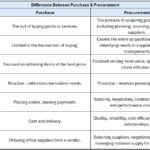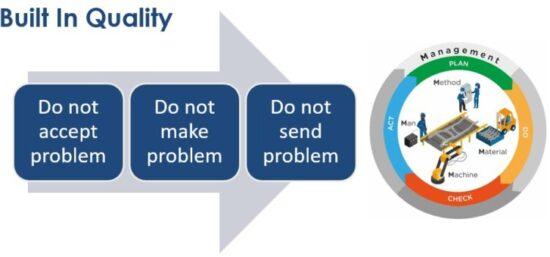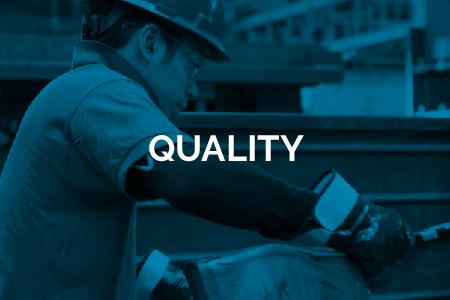The role of a Quality Engineer (QE) is critical in ensuring products meet certain standards of quality, reliability, and performance. Quality Engineers work across various industries, including manufacturing, software development, healthcare, and aerospace, among others. Their primary responsibility is to implement and maintain quality assurance processes, conduct tests, analyze data, and develop strategies to improve product quality. In this blog, we’ll explore how to make a career as a Quality Engineer, discussing the necessary education, skills, certifications, and steps to enter and thrive in this field.
Understanding the Role of a Quality Engineer
Quality Engineers are tasked with various responsibilities depending on the industry and company. Common duties include:
- Designing and implementing quality control processes: This involves creating procedures to ensure products meet specified standards and identifying areas for improvement.
- Conducting tests and inspections: Quality Engineers perform regular tests on products and systems to identify defects or areas that need enhancement.
- Analyzing data: They analyze test results and production data to identify trends and implement corrective actions.
- Collaborating with other departments: Quality Engineers work closely with production, design, and supply chain teams to ensure quality standards are met throughout the product lifecycle.
- Ensuring compliance with regulations: They ensure that products comply with industry standards and regulations.
Educational Requirements
High School Preparation
Starting a career as a Quality Engineer begins with a solid foundation in high school. Focus on subjects such as mathematics, physics, chemistry, and computer science. Participating in STEM (Science, Technology, Engineering, and Mathematics) activities and competitions can also be beneficial.
College Degree
Most Quality Engineer positions require at least a bachelor’s degree in a relevant field. Common majors include:
- Mechanical Engineering
- Electrical Engineering
- Industrial Engineering
- Materials Science
- Chemical Engineering
- Software Engineering (for software quality engineers)
Advanced Degrees
While not always necessary, a master’s degree can provide a competitive edge. Degrees in fields such as Quality Assurance, Quality Management, or specific engineering disciplines can be beneficial. Advanced degrees are particularly valuable for those looking to move into management roles or specialized areas of quality engineering.
Essential Skills for Quality Engineers
Quality Engineers need a diverse set of skills to excel in their roles. Here are some of the most important ones:
Technical Skills
- Understanding of Quality Standards: Knowledge of standards such as ISO 9001, Six Sigma, and others relevant to the industry.
- Statistical Analysis: Proficiency in statistical methods and tools for analyzing quality data.
- Problem-Solving: Ability to identify issues and implement effective solutions.
- Testing and Inspection: Knowledge of various testing and inspection techniques and tools.
- Software Proficiency: Familiarity with software used in quality control, such as Minitab, MATLAB, and various CAD software.
Soft Skills
- Attention to Detail: Meticulous attention to detail is crucial for identifying defects and ensuring quality.
- Communication Skills: Ability to clearly communicate findings and recommendations to other team members and stakeholders.
- Teamwork: Collaborating effectively with other departments and teams.
- Time Management: Managing time efficiently to meet deadlines and ensure timely quality checks.
- Adaptability: Being able to adapt to new technologies, processes, and industry standards.
Certifications and Professional Development
Obtaining certifications can significantly boost your credentials as a Quality Engineer. Some of the most recognized certifications include:
Certified Quality Engineer (CQE)
Offered by the American Society for Quality (ASQ), the CQE certification is one of the most respected credentials in the field. It covers topics such as quality management systems, auditing, reliability, and statistical methods.
Six Sigma Certification
Six Sigma certifications (Yellow Belt, Green Belt, Black Belt, and Master Black Belt) focus on data-driven quality control processes and methodologies. They are widely recognized across various industries.
ISO 9001 Lead Auditor
This certification is valuable for those looking to specialize in auditing quality management systems. It demonstrates expertise in understanding and implementing ISO 9001 standards.
Lean Manufacturing Certification
Lean Manufacturing principles focus on reducing waste and improving efficiency. Certifications in Lean Manufacturing are particularly valuable in the manufacturing industry.
Continuous Learning
Quality Engineers must stay up-to-date with the latest industry trends, standards, and technologies. Participating in workshops, attending conferences, and subscribing to relevant publications can help you stay informed.
Steps to Start Your Career as a Quality Engineer
1. Get the Necessary Education
As mentioned earlier, obtaining a bachelor’s degree in a relevant field is the first step. Focus on courses that cover quality control, statistical analysis, and engineering principles. Participate in internships or cooperative education programs to gain practical experience.
2. Gain Relevant Experience
Entry-level positions in quality control or assurance are a great starting point. Look for roles such as Quality Control Technician, Quality Analyst, or Manufacturing Engineer. These positions will help you gain hands-on experience and understand the practical aspects of quality engineering.
3. Obtain Certifications
While gaining experience, work towards obtaining relevant certifications. Start with foundational ones such as Six Sigma Yellow Belt or Lean Manufacturing and progress to more advanced certifications like CQE or Six Sigma Black Belt.
4. Build a Professional Network
Networking is crucial for career growth. Join professional organizations such as ASQ, attend industry conferences, and participate in online forums. Networking can help you stay informed about job opportunities and industry trends.
5. Apply for Quality Engineer Positions
Once you have the necessary education, experience, and certifications, start applying for Quality Engineer positions. Tailor your resume and cover letter to highlight your relevant skills and achievements.
6. Continue Professional Development
The field of quality engineering is constantly evolving. Continue learning and developing your skills through advanced certifications, workshops, and courses. Pursue a master’s degree if you’re aiming for higher-level positions or specialized roles.
Thriving in Your Career as a Quality Engineer
Stay Updated with Industry Trends
The field of quality engineering is dynamic, with new standards, technologies, and methodologies constantly emerging. Stay updated by reading industry publications, attending webinars, and participating in continuous education programs.
Develop Leadership Skills
As you gain experience, you may move into supervisory or managerial roles. Developing leadership skills will be crucial for managing teams, projects, and quality assurance programs. Consider taking courses in leadership, project management, and business administration.
Focus on Innovation
Innovation is key to improving quality processes and products. Stay curious and open to new ideas. Experiment with new methodologies and technologies that can enhance your quality control processes.
Build Strong Relationships
Quality Engineers often work with various departments within an organization. Building strong relationships and effective communication channels with colleagues in production, design, and supply chain can help streamline quality processes and resolve issues more efficiently.
Measure Your Success
Set clear goals and metrics to measure your success. Regularly review your performance against these metrics and identify areas for improvement. Successful Quality Engineers are those who continuously strive for excellence and are proactive in addressing challenges.
Conclusion
A career as a Quality Engineer is both challenging and rewarding. It requires a strong foundation in engineering principles, a keen eye for detail, and a commitment to continuous improvement. By obtaining the necessary education, gaining relevant experience, obtaining certifications, and staying updated with industry trends, you can build a successful career in quality engineering. As a Quality Engineer, you will play a crucial role in ensuring that products meet the highest standards of quality, reliability, and performance, contributing to the overall success of your organization.
Embarking on this career path not only offers opportunities for professional growth but also allows you to make a significant impact on the quality and reliability of products that people use every day. Whether you’re just starting your journey or looking to advance in your career, the field of quality engineering offers a promising and fulfilling future.
Click below for similar artilces
- Top 15 MNCs Every Mechanical Engineer Dreams of Joining in 2025

- How to Digitize and Automate the CAPA Process

- Top 10 Essential Tools Every Mechanical Engineer Should Know

- What is GD&T (Geometric Dimensioning & Tolerancing) ?

- Principles of IATF 16949: A Guide to Quality Management

- The Evolution of IATF 16949: The Automotive Quality Standard

- Top Interview Questions Related to SPC ,Cp and Cpk

- Difference Between Purchase and Procurement

- Master Your Job Interview: Top 70 Common Interview Questions and Answers

- What Is Standard Deviation ?

- Top Interview Questions and Answers on SPC

- Top 20 Interview Questions For Customer Quality Manager ?




